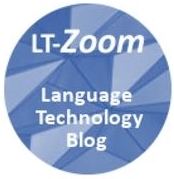
In advance of LTI19, Philippe Wacker, LT-Innovate Executive Director. talked to Arthur Wetzel, Managing Director & CSO of 24translate Holding, whose company is a Gold Sponsor of the Summit:
Philippe Wacker: Could you briefly describe your company and provide the basic figures that situate it in its market?
Arthur Wetzel: 24translate celebrated it 20th “birthday” this year, within those two decades we relied on our intrinsic innovation mindset. The 24translate group grew with fully digital workflows that made us faster and more profitable whilst achieving high quality standards. With 150 employees in four offices in Europe, we deliver roughly 120’000 orders p.a. Today, we have strong expertise in banking, finance, insurance and telecommunications, due to more than 15 years of partnerships with big European companies in these fields. We are a family business with strong roots in Germany and Switzerland, totally independent financially and technologically. The next years it will be interesting to watch the ongoing digitization and consolidation in our market … who will stay and who will go, who will buy or get bought.
Philippe Wacker: How did your company evolve in the last five years?
Arthur Wetzel: Within the last years, we were restructuring our group, bringing the national entities nearer together and making them furture ready. Our key strategy was always to grow organically through innovative products, now we are in the stage of acquiring other companies to enter other European markets and join forces with other players. As we all know, the market is consolidating, technology is one thing that counts but the flexibility to run new business models and services will be key to the future.
Philippe Wacker: What are the main challenges you see for your business in the next five years?
Arthur Wetzel: In the next five years we will reshape our business model and add Machine Translation post-editing to our service – actually we are running several tests with some clients already. Our key accounts want to translate more content into more languages, faster and cheaper. We do that with highly automated workflows in MTPE. The real challenge is the change in operations – best systems and best people go together if you are able to transform your existing staff and/or recruit new specialists. If you are not able to bring that together you will fail in a glimpse.
Philippe Wacker: Where do you currently see your biggest opportunities?
Arthur Wetzel: The translation industry will change radically over the next years and we are ready to move fast and flexible, in order to adopt to all necessary changes quickly. Machine Translation and post-editing will be one new product, which will substitute human translation, but also in advanced services, such as SEO translation, we see a rising demand.
Philippe Wacker: Which language technologies (or components thereof) do you consider as most relevant for your business as you see it growing over the next years? How do you see these technologies evolving to accompany your growth?
Arthur Wetzel: AI of course, a buzzword that everybody uses and no one fully understands yet, will be an incremental part for all our new technological products. Artificial intelligence will help us to evaluate texts in pre translation and ensure the quality of all deliverables. ...besides – in our staff and management we are glad that we gathered a lot of human intelligence.
Philippe Wacker: In particular, what effect do you expect NMT reaching human parity to have on your service/product line? ...and which consequences do you factor in for your business model?
Arthur Wetzel: We will get to a certain parity level in in NMT sooner or later, human parity will still be a dream for a long time, especially when it comes to specialized or classified texts and exotic languages. The market for human translation will persist for a long time if it comes to quality translation. For low key texts or personal texts NMT is already there and NMT is here to stay.
Philippe Wacker: What are your main demands from the language technology supply side?
Arthur Wetzel: 98,5% of our systems are created and run by ourselves, therefore we do not have a real need. Connectivity companies, such as wordbee, could improve their connector portfolio, we see a vital market need here.
Philippe Wacker: Is there anything governments (at regional, national, European or international level) should or could do to improve your business environment?
Arthur Wetzel: The governments failed more or less to boost SMEs or innovative businesses. At least the y should improve productivity – a better and faster IP Infrastructure would be nice.


